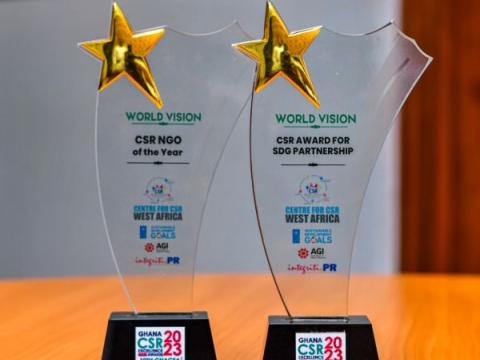3 Takeaways on Where We Are Headed in Education

By Mike Greer, Senior Technical Advisor For Education & Child Protection at World Vision US
So much is gained when teams gather in person. I was fortunate to recently attend a Global Education Team Meeting along with over a dozen World Vision colleagues. It was a beautiful diverse group with colleagues coming from all corners of the globe and representing experience across all aspects of education, youth, and life skills programming. This time the meeting was held in Ethiopia, allowing visits to education programmes in local communities and learning from Ethiopian colleagues.
There was much to experience, learn, and contribute throughout the week, and I am sure each of us emerged with something that better equips us to contribute to our part of the organisation. For me, as a Senior Technical Advisor with World Vision US, here are three leading take-aways that I came away with.
1) Global and remote teams deeply benefit from in-person meetings:
One of the challenges we see emerging is the need for teams and collaborators to stay connected when they’re spread across the globe. Devex has written few times about how global development organisations can best foster working remotely. In their recent webinar on the topic, one of two “struggles” with working remotely is knowing “How do I connect with my team and what are the rules or ways of working? (Anzbock, Prosper Abroad)”[1]
There is something magical about groups of colleagues coming together to define strategies and debate priorities by day, while later deepening personal relationships over dinner. Such face to face interaction introduces ways of collaborating that we could not see before. Colleagues’ perception of each others’ availability and approachability improves. Perhaps most importantly, in person meetings build empathy among colleagues because we begin to learn those personal motivations that drive us in our daily work.
2) The future is holistic and modular:
If you have ever found yourself struggling to explain World Vison’s approaches externally, you’re not alone. We have a number of models and acronyms and sometimes they are catchy. Unfortunately, they can also get in the way of communicating exactly what it is that we do in the education/life skills space, with whom, and how our approach is unique.
There is a place for World Vision’s robust evidence-based project models that has potential to show results in our work. However, changing context and global diversity requires a more adaptive approach. World Vision’s Education sector is transitioning to a lifecycle approach that is holistic in nature and involves an increasingly modular approach. This means more briefers, guides, clusters of related approaches that are better suited for adaptation and responsiveness to varied contexts.
One of the reasons why this shift is particularly important for me is because I typically work with people that need pieces of education content: a capacity statement for a proposal, talking points for advocacy, summarizing an approach for an article. To the extent we can modular-ise sector content to support simple, quick, and easy-to-understand content, we will make our colleagues and donors very happy.
3) Sustainability is complicated… but essential:
“But what do we mean by sustainability?” I am pretty sure someone said that at least once during our week together. What I found particularly complex about our sustainability and localisation discussions was the diverse ways it affects our work beyond the obvious local buy-in and continuation of programs.
We talked about sustainability in the context of localization and changing donor priorities toward that end. As Julia Smith-Brake (Senior Adolescent Programming Specialist) pointed out, we discussed decolonising development and intentionally seeking to collaborate with, coach and learn from youth-led organisations, children's groups/platforms, and women-led institutions. In the youth space, for example, we are often self-excluded from funding and partnering opportunities because we don't have many youth-led organisational partners, let alone a systematic approach to partnering with youth-led groups.
We also discussed the need for increased advocacy at the national level, hopefully adding more local-to-national advocacy tools in programming materials in the future. And lastly, we considered how a revitalised Community of Practice can foster leadership, coaching, and technical expertise that better connects staff across our organisation, especially those on the front lines of our work.
An increasingly antiquated workplace saying is “my door is always open.” I am not sure if we’ve settled on the modern equivalent for that, but for now, I am happy to say that “my MS Teams status light is always green” to a broader swath of global education colleagues. I look forward to all the future takeaways we will come up with together as a result.
[1] https://www.devex.com/news/how-to-manage-yourself-when-working-remotely-105347